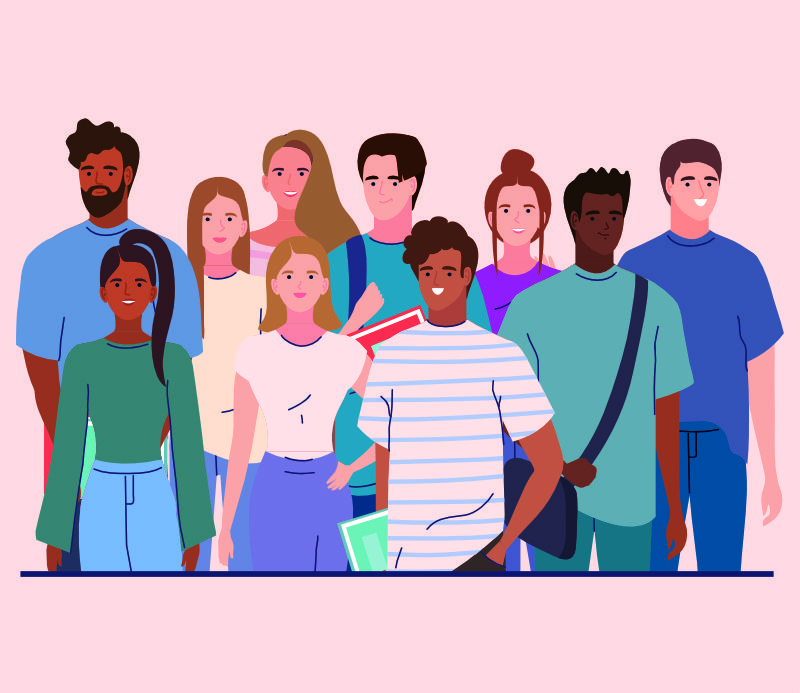Trick or Treat! College Diversity is Now in Hands of Supreme Court
With diversity and ethnicity as a factor for college admissions, many students stemming from underrepresented communities with limited resources have been given the opportunity to attend some of the most prestigious educational institutions in the country.
However, a conservative activist-led organization – Students for Fair Admission – argues that race as a determinant factor for admission is unconstitutional and discriminates towards ethnic communities. In a time where every important issue is politicized, Affirmative Action is now in the hands of the Supreme Court and the current predictions – like the economy – look a little regressive. In a media briefing hosted by Ethnic Media Services, speakers discuss the ramifications of Affirmative Action and the impact if it meets a similar fate to Roe V. Wade.
Speakers

- John C. Yang, President and CEO, Asian Americans Advancing Justice
- David Hinojosa, Lawyers’ Committee for Civil Rights Under the Law
- Michaele Turnage-Young, Legal Defense Fund
- Sally Chen, Harvard graduate and student amicus in the Harvard case
Judgement Day is Oct 31, 2022. The US Supreme Court is poised to hear the case against affirmative action presented by the SFFA. Going against Harvard and the University of North Carolina, the cases have brought race-conscious admission policies to the limelight. The SFFA argues that the admission policies of Harvard discriminate against Asian Americans because of Affirmative Action. However, many student activists, civil rights organizations, and universities are proponents of Affirmative Action as it paves a pathway for increased diversity.
Opponents of Affirmative Action
SFFA leader, Edward Blum, claims that 22,000 members were rejected admission due to race being a factor in evaluating prospective students.
For example, one second-generation Chinese student was rejected from Harvard. The student had the best GPA in his class and perfect test scores.
According to an analysis by Peter White in Ethnic Media Services, UNC received 43,500 applicants for its 2022 freshman class. With 40,000 rejections and a class of 4,325 being the proverbial scenario for the top schools in the nation, the 22,000 rejected students from SFFA account for .05% in the top 100 schools.
Proponents of Affirmative Action
John C. Yang, President and CEO of AAJC, outlines the concern for upholding Affirmative Action given the 6-3 conservative justice make-up. Yang noted that it is very uncertain how the case might go and where Affirmative Action might stand after October 31st.
Yang has given strong conclusive evidence that there is no discrimination against Asian Americans in college enrollment.
“In the case of Harvard, Asian American enrollment at Harvard has increased significantly. They make up nearly 28% of the most recently admitted class, even though Asian Americans make up only approximately 7% of the American population.”
Impact of Affirmative Action
Surveys conducted since 2010 show that two out of three Asian Americans are in support of affirmative action. Yang explains that if race was not considered in the process, admissions would drop from 14% to 6% for Black students and 9% for Latino students. A study conducted by Georgetown University reaffirmed the data.
David Hinojosa, Lawyers’ Committee for Civil Rights Under the Law, emphasizes the criticality behind this case. Hinojosa claims that many are against affirmative action and they want to bring back old admission tactics to exploit their privileges once again.
This could impact ethnic-minority students greatly. One student presented by Harvard is Sally Chen. Sally shares her story on how Affirmative Action allowed her to attend Harvard.
In an account by Sally Chen, published on Ethnic Media Services, she shares her struggles navigating through the American education system while her parents tried to make ends meet.
“My dad was a cook in a Chinese restaurant and my mom worked in a bakery in Chinatown. Our family of six grew up in a one-bedroom apartment in San Francisco, and we struggled to make ends meet. I went to public schools all my life, and from a really young age, I often translated and advocated on behalf of my parents.”
When it was time to apply for colleges, Chen decided to share her background instead of listening to her counselor. Her story shares who she really is and spoke mounds to Harvard. “…having this context made me a much stronger applicant.”
To Sum it All Up
We can all agree with the following statement from Michaele Turnage-Young, LDF Senior Counsel:
“All students deserve a fair shot at going to college, regardless of their income, where they grew up, or their racial and ethnic background.”
Many minority students are more likely to attend high schools with high poverty. Admission officers tend to keep that in consideration to ensure that minority students with high potential get the chance they deserve.
Affirmative Action and ethnic-based consideration in admissions allow applicants to present their real selves and share their stories.


